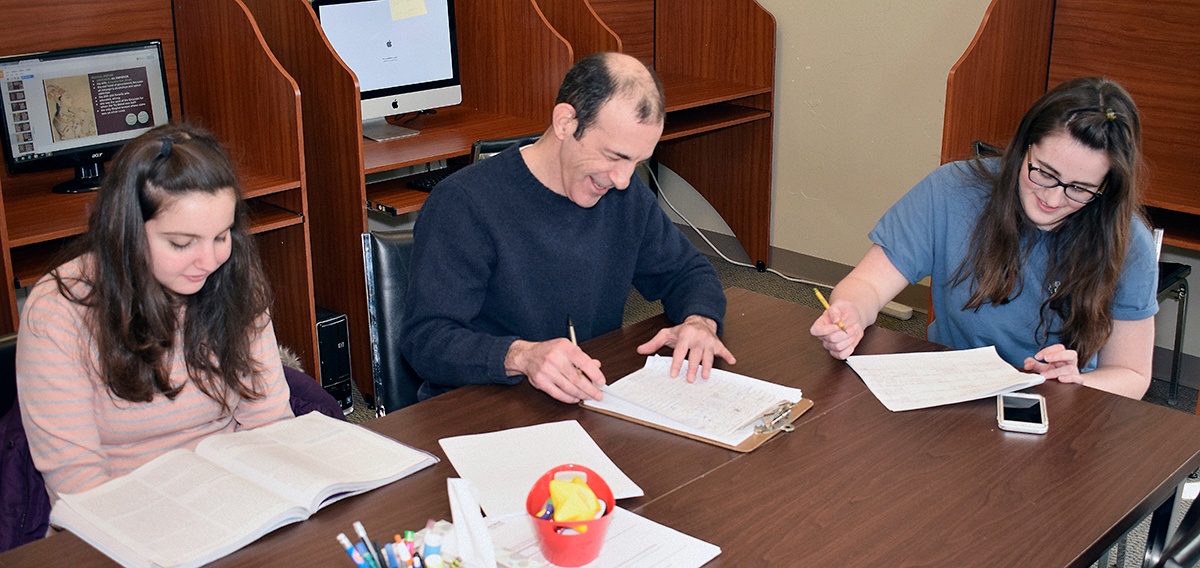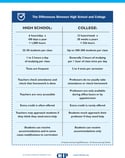
- Featured, Blog
A New Normal: Preparing Students on the Autism Spectrum for College
Students heading off to college can struggle with preparing for their new life (their “new normal”). This transition can be an even bigger struggle for students on the Autism Spectrum and with Learning Differences.
How can this transition be made easier, smoother, and more enjoyable for these young adults?
It all begins with executive functioning and support from managing their time, and advocating for themselves, to requesting accommodations in the classroom setting. When students develop executive functioning skills in the classroom it allows for a smoother transition, functions such as logic, strategy, planning, problem-solving, information processing, and behavior control. According to the Autism and Learning Differences Teaching Toolkit there are a number of strategies students and professionals can incorporate to achieve academic success!
Help Students Manage Time During the Day
- Divide large tasks into smaller segments
- Use calendars and planners
- Have a checklist/to do list with a timeline
- Help students arrive to class on time by implementing alarms or electronic reminders into their daily routine
- Prepare materials the night before so their morning isn’t rushed and stressful
Location, location, location
- Show students how to create a dedicated individual, quiet workplace
- Show students how to organize their personal work space
- Schedule a time each week to organize their work space in an effort to avoid clutter
- Keep backpacks, textbooks, etc in a designated place so students always remember where they are
Accommodations
- Test Accommodations: Open book tests, extended test-taking times, oral or fill-in-the-blank tests
- Tutorial support in class
- Allowing lectures to be recorded so that the student can go back and listen slowly
- Use of audiobooks, Kindles, Nooks, E-readers
Communication
- Encourage students to ask for help when feeling overwhelmed
- Seek support when they misunderstand
- Always communicate with staff, tutors, family, and friends
- Utilize the support and guidance available to you, think and communicate before acting
Feed the Mind, Body, and Soul
- Get out and have some fun with friends, make some downtime
- Go for a walk or to the gym
- Meditate, take a yoga class, or sit in a park and read, or go to the beach
- Students should listen to music that inspires and motivates them
It is important for students to have enough time to prepare for their “new normal” patience is key. A student should never feel rushed or be put into an academic course that they may not be ready for or interested in just for the sake of going to college. Families and professionals should create a roadmap for the student to reach his or her goal.
The keys to academic success for students on the Autism spectrum are organization, time management, self perception and awareness, task initiation, communication, flexibility, and persistence but most importantly, they need to feel supported, valued, and encouraged!

Bonus!How does High School differ from College? Download our guide to help make the transition clearer for your student. |
About College Internship Program
The College Internship Program is a comprehensive transition program for young adults on the Autism Spectrum and with Learning Differences. Our Mission is to inspire independence and expand the foundation on which young adults with Autism, ADHD, and other Learning Differences can build happy and productive lives.
Related Articles
- Watch Two CIP Webinars On-Demand: Discover How CIP's Full-Year Program Transforms Student Outcomes
- CIP at the 2025 Stanford Neurodiversity Summit
- Stories from Students, Parents & Staff
- Celebrating Differences and Moving Beyond the Medical Model: A Strengths-Based View of Autism
- CIP Celebrates 40 Years of Empowering Young Adults with Autism and Learning Differences


